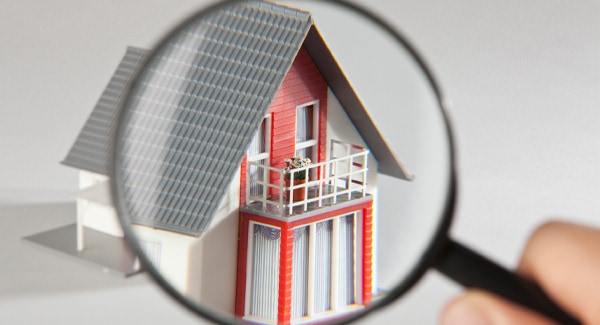
Last Updated on February 4, 2026
Chances are you’ve heard a rumor that buying is actually cheaper than renting, so I’m here to set the record straight: In the long run, buying actually saves you a whole lot of cash. Of course, if you’re a newbie to the career world and just starting to learn what it’s like to not pay overdraft fees, (thanks, college) buying a home is likely easier said than done.
So how do you go about saving for a home? Keep reading; you may discover it’s easier than you think.
Learn about your options, first
First things first, it’s a good idea to meet with a mortgage consultant to figure out what loan options are available to you. As a first-time homebuyer, you likely don’t have a ton of cash to work with, so you’ll be happy to find out about the wide variety of loan options on the market. Here’s a quick snapshot:
- FHA loans: Supported by the government, FHA loans are often the best option for first-time buyers. Home buyers that go through FHA to finance their home are able to do so with as little as 3.5 percent down.
- Conventional: Backed by Fannie Mae and Freddie Mac, qualified buyers can purchase a home with as little as 3 percent down with a conventional loan.
- VA loans: For members of the military, veterans, reservists and National Guard, loans backed by Veterans Affairs can be obtained without any down payment. PMI or private mortgage insurance that is typically required for loans obtained without a minimum down payment of 20 percent is not required with VA loans— another huge plus.
- USDA loans: Backed by the United States Department of Agriculture, eligible rural and suburban home buyers can qualify for zero down payment loans with low interest rates.
Start a budget
Budgets are for everyone. Some people have the silly notion that budgets only exist for those that need to watch what they spend. Newsflash: Everyone needs to watch what they spend. Keeping a close eye on your spending and saving habits is the key to building wealth.
Don’t go investing in fancy budget software—you’re saving money, remember?!–instead open up Excel and create a spreadsheet. List all necessities first: Rent, cars, health insurance, food, etc. Next, create a savings goal. Commit to cutting any unnecessary expenses to save as much as possible.
Each time you get paid, pull up your spreadsheet and your online bank statement and see how you did. If you’re having trouble staying on track consider the cash envelope trick. Only want to spend $400 a month on groceries? Put cash in an envelope and when it runs out, no more spending for the month.
Stay away from Target
And Amazon, for that matter. While you’re cutting out non-essentials it’s best not to tempt yourself. While you’re at it, go ahead and hit the unsubscribe button to any retail emails— the outta sight, outta mind principle really works.
Find a side hustle
Exactly no one gets enthused about working in excess of 40 hours a week. But if you’re saving for a down payment, a side job is a quick way to watch your bank account grow. The key to not quitting the side job after your first week is to find something you enjoy doing.
Are you an animal lover? I hear Pet’sMart has some openings. Or maybe you have a passion for writing or graphic design? There’s tons of freelancing opportunities in those fields. You could always try waiting tables. Remember, this too shall pass. Work until you’ve scrounged up a comfortable amount of money and then say adiós to your side gig.
Get acquainted with points
Traveling is expensive, but thanks to credit card points, it doesn’t have to be. I’m a big fan of The Points Guy— he’s your go-to expert on all things points. Don’t let your friend’s wedding slash your savings in half. Plan ahead, find the best rewards card for your needs and travel for free.
Trade in that fancy car
I get it. You got tired of driving that old rickety car mom and dad gifted you before college so as soon as you got your first adult job you went out and bought a car to match. Serious about saving? Trade the car in for something way less expensive.
Don’t pay interest
Stop thinking of everything you buy as just another payment. Want furniture but don’t have the cash to cover it? Do not sign up for a payment plan. Chances are you’ll totally forget about having to pay the balance in full by a certain number of months, so you’ll be stuck with 25% interest.
While we’re on the subject, pay off your credit cards each month. You don’t need to be paying interest on retail items.
_____________________
Howard Hanna Allen Tate Real Estate is the #1 real estate company in the Carolinas, with more than 80 offices and 2,000 agents serving communities across North and South Carolina and Georgia. As part of Howard Hanna Real Estate Services, the largest family-owned and operated real estate company in the United States, Howard Hanna Allen Tate offers a full suite of real estate services, including mortgage, insurance, title and relocation. For more information, visit www.howardhannatate.com.



